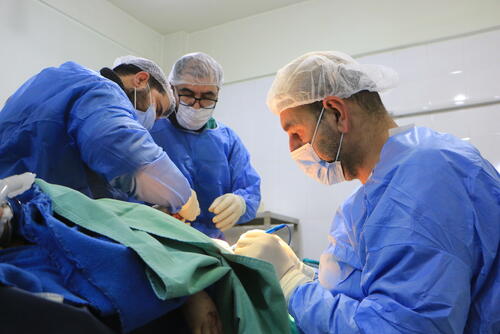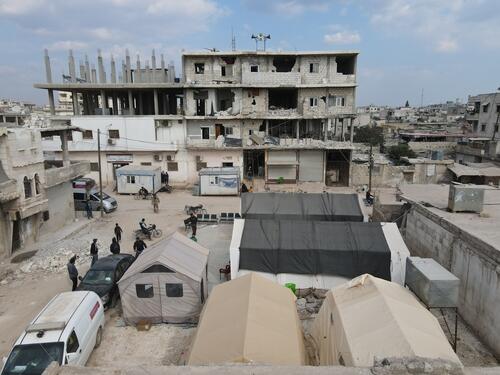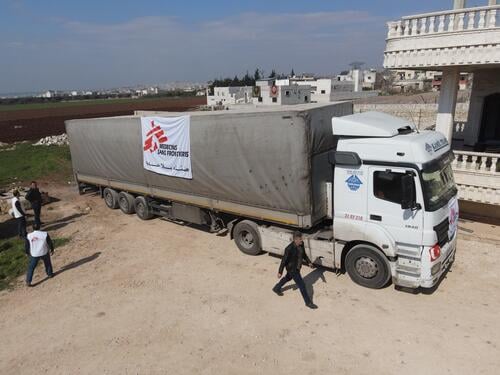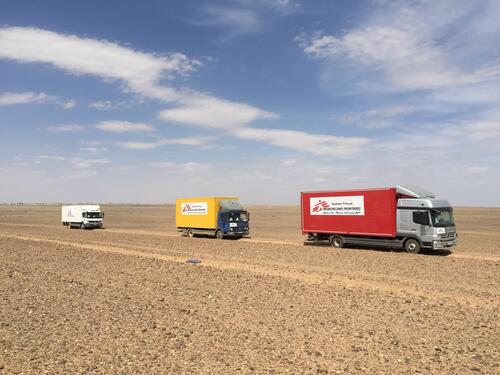According to latest estimates, the earthquakes that hit Türkiye and Syria have resulted in the death of more than 41,000 people. In northwest Syria, Médecins Sans Frontières (MSF) teams on the ground are supporting hospitals with donations and staff, and providing medical and relief aid to people affected by the disaster.
The MSF hospital in Atmeh, which usually specialises in caring for people with severe burns, has made numerous donations of medical and non-medical equipment to 30 hospitals in the region. We have also sent our surgeons from there as reinforcements to several hospitals in the area.
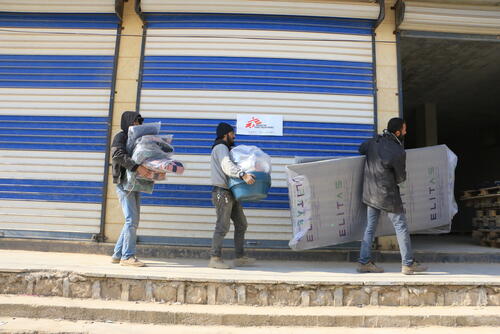
“On 6 February, we quickly understood that we were facing a catastrophic situation,” says Mohammad Darwish, deputy director of MSF Atmeh hospital. “The destruction was massive in the area. We launched our emergency plan less than three hours after the first earthquake and put our staff on alert.”
Our teams in Atmeh have started to send medical equipment to around 10 hospitals in the region: Bab al-Hawa, Darat Izza, Idlib, and even to Atarib. “All the hospitals were overwhelmed, including ours,” says Samih Kaddour, director of the Aqrabat hospital.
“MSF teams were the first to help us and to share their resources. They gave us materials, including those needed for making casts and sterilising wounds,” says Kaddour. “We received 800 people in the emergency room, 250 of whom needed surgical treatment. Even today [11 February], the wounded continue to flow in.”
We are still performing lifesaving surgeries on people who were crushed as a result of the earthquakes. The situation is indescribable and for now we are alone.Moheeb Kaddour, director of a hospital in Atmeh
“We are still performing lifesaving surgeries on people who were crushed as a result of the earthquakes,” says Moheeb Kaddour, director of a hospital in Atmeh.
Many people who were crushed, suffered from prolonged compression of the muscles, and this can be fatal as it causes organ dysfunction. “The situation is indescribable and for now we are alone,” says Moheeb.
MSF surgeons from the MSF hospital in Atmeh were also sent to certain health facilities in the region to help their colleagues dealing with large numbers of injured people. “I went to a hospital located in the immediate vicinity of Türkiye,” says Dr Mohammad Zaitoun.
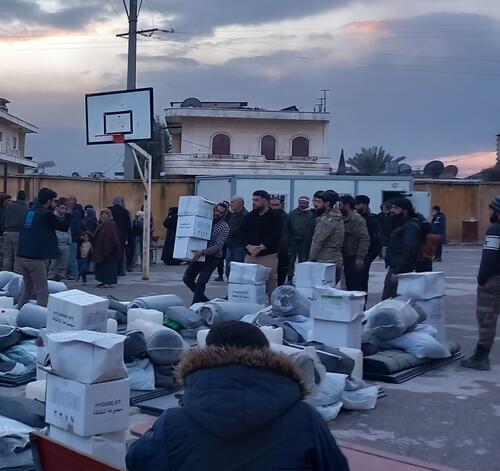
The inability to transfer patients across the border has further hampered the response. “The impossibility of receiving external support or transferring the wounded put immense pressure on us. There were many wounded and medical staff were exhausted,” says Zaitoun. “We did our best together with the MSF teams in Atmeh. I had never witnessed such an influx of wounded, except perhaps during the bombardments or massacres that took place in the region.”
Ambulances from Atmeh hospital were also used to facilitate the transfer of patients between hospitals. Our mobile teams have also adapted to the situation by visiting areas where victims have been congregating.
“We still do not have a clear vision of the situation in the wider area of Atmeh,” says Mohammad Darwish, deputy director of MSF Atmeh hospital. “We just know that the hospitals are full of wounded and dead people and that the needs are immense. People are in need of everything.”
Almost a week after the earthquakes, we still have not received any help from outside.Moheeb Kaddour, director of a hospital in Atmeh
“We immediately opened our logistics warehouses and distributed hundreds of essential items, but it is not enough,” says Darwish. “At least 2,500 blankets have been donated to hospitals for patients, and hundreds of kits of basic items have been distributed to families.”
Our teams are drawing on emergency stock, while waiting for international supply, which has been hampered by the political tensions surrounding this region. Before the earthquakes, Bab al-Hawa was the only crossing point for humanitarian aid from Türkiye to northwest Syria.
“Almost a week after the earthquakes, we still have not received any help from outside,” says Moheeb Kaddour. “Support only came from other hospitals, local communities or organisations already present before the disaster.”
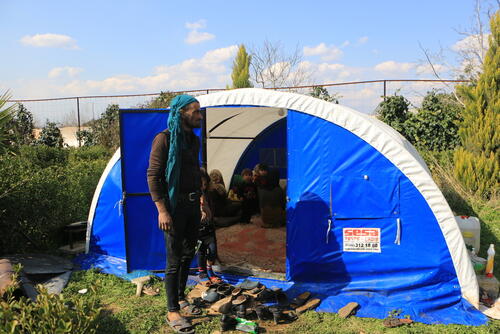
The MSF hospital in Atmeh provides essential care, but also has its limitations and can only adequately care for people with moderate burns. Today, there are no more specialised hospital beds in the governorate of Idlib and people cannot cross the border.
In northwest Syria, the earthquakes have disrupted a region that already hosts more than two million displaced people living in camps and where access to healthcare is seriously lacking.



